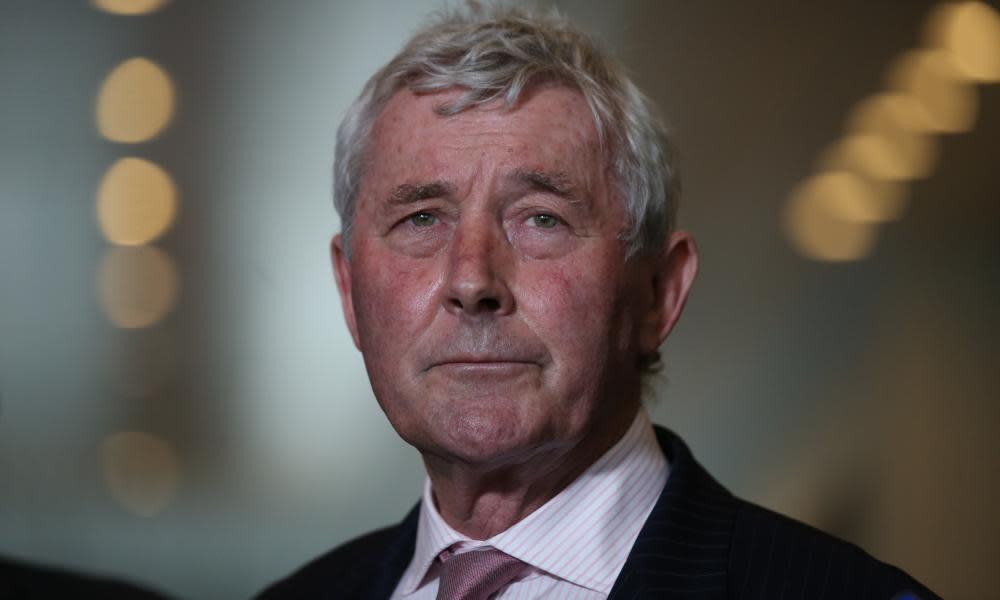Witness K lawyer warns many whistleblowers have 'nowhere to go'

The lawyer facing jail time for helping to expose an unlawful spy operation has called for urgent whistleblower reforms and warned defence and intelligence officers currently have “nowhere to go” when they witness serious misconduct.
Bernard Collaery, the barrister and one-time attorney general of the ACT, has called for the creation of a new independent parliamentary body to provide an avenue for defence and intelligence whistleblowers.
In an interview with Guardian Australia, Collaery said the current system gave such whistleblowers no real outlet to raise concerns.
He said they were rarely shielded by whistleblower protections and the intelligence watchdog, the Inspector-General of Intelligence and Security (IGIS), had been found lacking in its ability to protect those who make disclosures.
The gaps in the current system not only risk covering up wrongdoing, he said, but also encourage whistleblowers to go public in dangerous ways, potentially placing themselves at risk and compromising national security.
“The whole process is unjust and a real threat to our nation,” Collaery said.
“Genuine whistleblowers have nowhere to go. Nowhere to go at the moment. [Witness] K went to the IGIS, that’s public knowledge. What happened?
“You just cannot have those situations any further. For people in the defence and intelligence community, it’s absolutely barren. There’s nowhere to go.”
Collaery’s comments come as Australia’s media outlets unite to highlight creeping government secrecy, including through its treatment of whistleblowers like Collaery and Witness K. Collaery and Witness K helped to expose Australia’s bugging of Timor-Leste during 2006 negotiations to carve up oil and gas resources in the Timor Sea.
Witness K followed the proper procedures to avoid compromising national security and approached the IGIS.
Collaery and Witness K have both been prosecuted for the disclosures, which were made during a confidential arbitration between Timor-Leste and Australia, and subsequently to the media after Australia seized legal documents belonging to Collaery and his team.
Other whistleblowers are currently facing reprisals from a wide range of governments and institutions, including parking inspectors who spoke out about local council misconduct, a tax office worker who spoke out about aggressive debt collection tactics, a defence official who leaked documents about the Afghan war, and an academic who blew the whistle on student exploitation.
The current whistleblower protection system generally encourages intelligence and defence whistleblowers to make reports internally – often an unviable prospect for those who need to raise concerns outside of the chain of command – or approach the IGIS.
Related: Australian newspapers black out front pages to fight back against secrecy laws
Collaery has proposed a new statutory oversight body, made up of “eminent, distinguished politicians” who are approved via a public confirmation hearing, much like the process followed in the US.
The body would have broad operational oversight of intelligence agencies, and be aided by a co-opted expert panel. It would be able to deal with whistleblowers confidentially, including in a more proactive sense for those still considering whether to come forward.
It should also be designed to encourage complaints on current wrongdoing, rather than focusing only on past conduct, he said.
Collaery is currently awaiting trial for the disclosures. That trial will itself be partially heard in secret.

 Yahoo News
Yahoo News 
